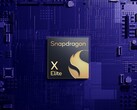The Qualcomm Snapdragon X Elite was supposed to be the “Apple M1” moment for Windows laptops, promising significantly longer battery life alongside impressive performance. Although Qualcomm largely delivered on these aspirations, the chip fell short of being a real breakthrough for the company due to the hefty price tags of Snapdragon X Elite-based laptops and widespread software-compatibility issues at launch.
Another crucial factor is that Intel launched the Lunar Lake lineup as a direct competitor shortly after the Snapdragon X Elite’s debut. Despite having fewer cores and thus lower multi-thread performance, Lunar Lake processors demonstrate remarkable efficiency in everyday use whilst offering ample performance for office and web applications. Qualcomm is now fighting back against Intel in a series of ads (see below), claiming that Lunar Lake processors throttle their performance to 55% when unplugged, whereas the Snapdragon X Elite is apparently capable of maintaining full performance under the same conditions. This point was conveyed in a rather lighthearted manner, but the following fine prints reveal flaws in the test methodology:
CPU Performance is based on Geekbench v6.2 Single-Core on Windows 11 OS run in October 2024, Snapdragon X Elite (XIE-80-100) was tested using a Dell XPS 13 (9345) on "Balanced" Power Mode in Windows and "Optimized" in Dell Power Manager. Intel Core Ultra 7 256V was tested using a Dell XPS 13 (9350)
The single-core test in Geekbench 6.2 isn’t particularly demanding and provides hardly any insights into a system’s overall performance. During our in-depth testing of the two Dell XPS 13 variants (approx. $1,500 on Amazon) featured in Qualcomm’s comparison, the Intel Core Ultra 7 256V performed nearly identical to the Qualcomm Snapdragon X Elite in Geekbench’s single-core benchmark.
On battery power, the Intel-based model did experience a 9% drop in CPU performance and a 3% loss in GPU performance, whilst the Snapdragon-based variant largely retained the same performance. So, even though Qualcomm’s core message isn’t entirely false, the very bold “55%” claim should be taken with a grain of salt, especially considering such drastic performance drops aren't typical for Lunar Lake laptops.

















